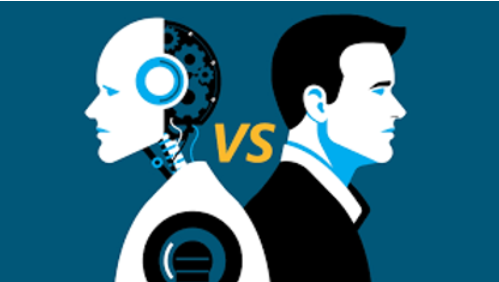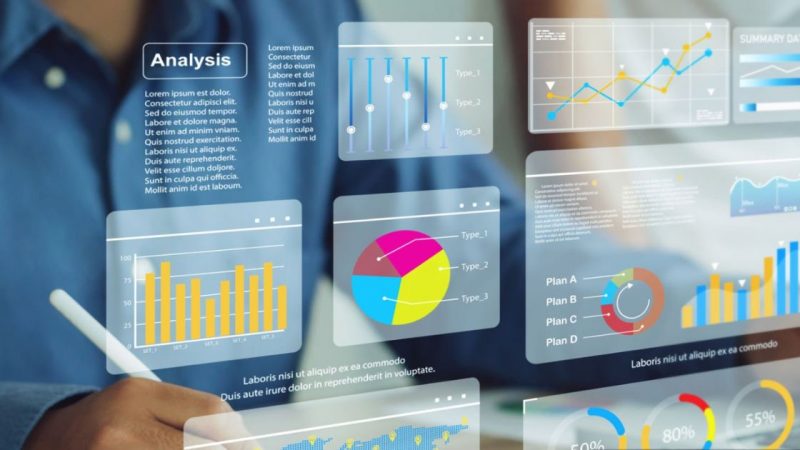Important note: This blog was not written by ChatGPT.
The question of automation and new tools replacing jobs is nothing new. During the 1st Industrial Revolution of the 18th and 19th century, the rise of the iron and textile industries and the development of the water wheel and steam engine caused the average worker to worry about being replaced with machines.
While there may have been short term job losses, history shows that not only were humans not replaced, but it actually caused an increase in jobs and an overall improvement in quality of life and opportunities.
The 2nd Industrial revolution (1870-1914) was no different. Tools from the first industrial revolution were improved, and the world-changing inventions of electricity, the telephone, oil, and steel, along with the more efficient war machines used in the two world wars, were introduced. Here too, people were certain that machinery would replace jobs, but once again, the short term job losses were outweighed by the boom of new opportunities.
The 3rd Industrial Revolution, the digital age of the 1970’s and 1980’s, went after white collar and office jobs for the first time. Personal computers, software, and the internet all threatened manual office jobs.
One thing stood that out in particular was the invention of spreadsheets, namely Microsoft Excel.
Why would anyone need so many accountants or finance employees when a software program can do all the work for you?
If this question sounds familiar to you, then you’re not alone. With the release of ChatGPT, many people are wondering if it won’t replace many jobs in marketing, programming, and even sales in the future.
But as history has shown us, and with Microsoft Excel as a close example, ChatGPT won’t replace jobs – but it might change, and even improve, how we conduct many things.
Let’s take a look at some of the ways ChatGPT might change some job aspects, and how it can provide more value to our existing tasks.
Gets you out of the stuck mentality
It happens to everyone once in a while. Whether it be not enough sleep or too many distractions, us humans get in that “brain fog” mentality sometimes. Simple tasks take longer than usual, and creativity is out of the question. ChatGPT can give some great ideas through a simple search or even playing around with commands.
While Google searches don’t always return the exact results we are looking for and the algorithm can’t be changed, ChatGPT can be programmed to produce the results we want through different search queries or commands (For example: “rewrite”, “shorten”, or “continue the thought”.
This can do wonders for creative ideas and starting new projects, no matter if it’s copywriting, coding, sending a simple email, or ideas for your team leadership event next week.
Helps with messages and tone
You know that time when you almost press “send” on an email that is written in a rude tone because you are upset at a coworker or in a bad mood? ChatGPT can help with that too. You can command it to write an email with certain details in a polite or professional tone.
Even more so you can ask it to write a responsive and professional email by giving it just a few details. “Next Tuesday at 3 pm works great” can turn into a professional email with those details inside without taking the time to produce all of the mundane fluff that so many people dislike in emails.
Amazing learning tool
While Google, Wikipedia, and the internet completely changed the way and speed that people acquire knowledge, ChatGPT can take it to the next level. If you are learning a new language (whether it be coding or an actual language), want to improve your writing skills, or anything else, it won’t only tell you if you made a mistake, but it can also be commanded to explain the mistake.
This can help tremendously for employees in junior positions who want to expand their knowledge, those looking to improve their writing skills, or really anyone who wants to learn from their mistakes whether inside of the workplace or on their own. This is perhaps one of the most important and undervalued uses for ChatGPT.
Future of ChatGPT
Now that we have explained some of the ways ChatGPT can improve the workplace, the question still remains, Will it replace employees?
If history is any indication then the answer is no – although it may create some changes in the way we work. For example, a copywriter or programmer may be asked to do more tasks since there are now more tools at their disposal. The fact that it helps with creativity can also save time, as it can help jumpstart ideas during those “stuck” periods.
Excel was very similar back in the 1980’s when it was first created. Instead of accountants spending hours on erasing and recalculating handwritten spreadsheets after changing one number, a program could do it for them in a few seconds.
Instead of taking away jobs from accountants and finance, it allowed them to focus on other tasks and things that require more skills and analysis. The same thing is occurring now. As the amount of data has increased and the speed of decision making needs to be faster, other software tools have been created to upgrade Excel. In fact, Excel is still a very important skill in many job descriptions, and spreadsheets are not outdated at all.
ChatGPT will most likely follow a similar path. The value it provides will help employees improve their jobs and if used correctly it can help with speed, accuracy, creativity, and learning. And like most important inventions and tools of the past few hundred years that upgrade work, it’s important to understand how they work and the best ways to use them.





